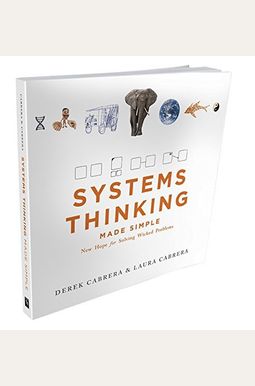 Systems Thinking Made Simple: New Hope for Solving Wicked Problems
Systems Thinking Made Simple: New Hope for Solving Wicked Problems, Derek Cabrera & Laura Cabrera.
Copyright 2015, 213 pp.
This is a book about
thinking, not so much about the anatomy of systems, like the other books (particularly Meadows' wonderful "Thinking in Systems"). STMS is trying to explain the thinking processes that lead people to be able to recognize and work with and within systems of all types (sociological, biological, mechanical, intellectual...you name it).
And that is why it is a comprehensive book about the use of four basic ingredients in thinking--which the authors believe are common to all humans--that just need to be continually practiced and improved to turn people into skillful systems thinkers. From their research coupled with experience in direct education (they raised three children together and have worked in the public schools for decades), the authors (both professors at Cornell) write that humans naturally have the abilities for systems thinking, and that any thinking at all uses these four "ingredients." Ultimately, focus and practice allows increase of skill and ability to help humanity with problems of all magnitudes, the authors believe. It's hopeful and very interesting.
I am working on reading through it a third time--there's a lot here, but it's written for regular citizens, so it's a how-to for all of us! I enjoy it very much, and will tackle the sequel about organizational leadership soon, too.
“If we are honest, we can still love what we are, we can find all the good there is to find, and we may find ways to enhance that good, and to find a new kind of living world which is appropriate for our time.” ― Christopher Alexander


